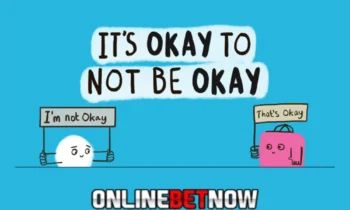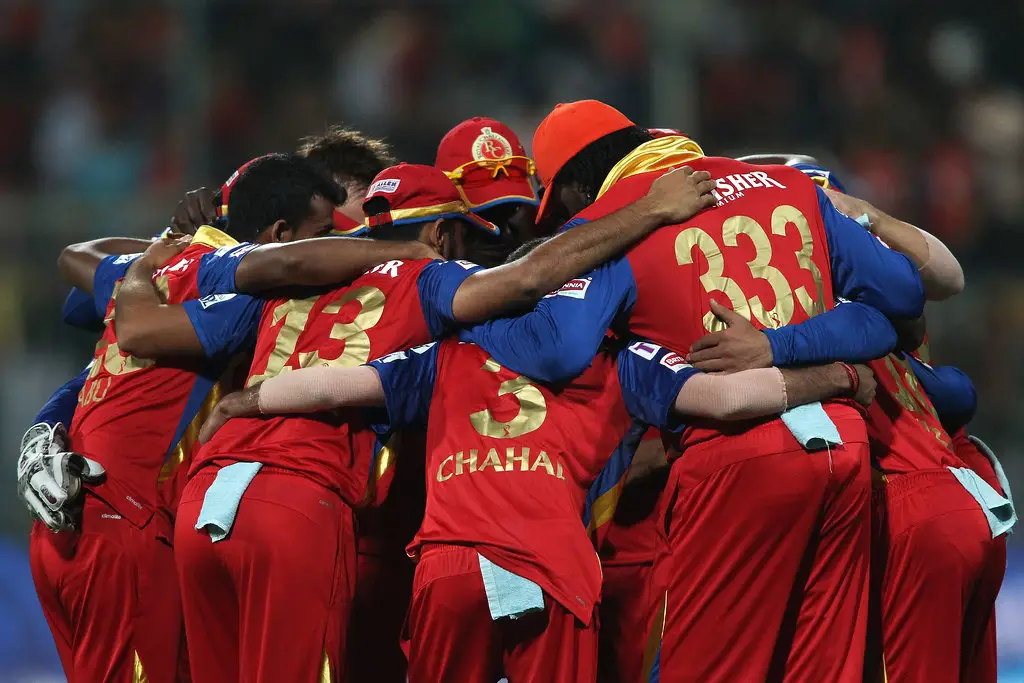How Mental Health Awareness is Changing the Landscape of Professional Sports

The Silent Battle Off The Field
In professional sports, athletes often engage in battles far beyond the stadium, the court, or the track. Traditionally, the definition of ‘strength’ in professional sports has been limited to the physical. The ability to run faster, hit harder, and endure longer than an opponent was all that mattered. But this outdated view is shifting as we start to recognize that mental health is an essential component of an athlete’s overall well-being and performance. It’s the less visible but pervasive battle against mental health issues—a fight that has long been kept in the shadows due to fear, misunderstanding, and stigma. The conversation around these ‘off-the-field battles’ is frequently hushed up or ignored, leaving many athletes feeling isolated and unsupported. This article seeks to change that narrative, bringing awareness to the mental health struggles professional athletes face and promoting proactive measures. By doing so, it aims to inform and enlighten coaches, athletes, sports psychologists, and fans, allowing for a holistic approach to athlete well-being, and ultimately changing the landscape of professional sports.

Breaking the Stigma: Acknowledging Mental Health in Professional Sports
Athletes are people too. And just like the rest of us, they’re fighting a battle that most people don’t know, or worse, no one knows but themselves. Just like ordinary people, they are not immune to the stresses of life. But as an Athlete whose life is like a symbol of strength and power, calling for help can carry a stigma. Because you look tough, you should do it on your own, you don’t have to ask for help. And this misconception only creates bigger problems as time goes by.
Stress is normal for all people. But when it comes to athletes and sports, it can be like a pressure cooker. From a perfectionist competitor to over-expecting crowds, it’s like a powerful force but can also drive athletes unsatisfied no matter how well they perform.
In recent times, there has been a growing recognition of the importance of mental health among athletes, coaches, and school administrations in the whole world. After years of neglect and the stigma surrounding emotional vulnerability, there is now a concerted effort to encourage athletes to openly address the challenges they face within their sports.
Fortunately, there are numerous avenues available for individuals to address their mental health concerns. Engaging in conversations with trusted friends or acquaintances can prove to be a powerful coping mechanism, providing a safe space to share personal stories and lend an empathetic ear.
Athletes possess inherent courage and natural leadership qualities that can play a pivotal role in dismantling the stigma surrounding mental health discussions. By joining forces and integrating mental health into regular conversations, significant strides can be made in altering societal perceptions and fostering an environment that embraces open dialogue about mental well-being.
The Impact of Mental Health on Performance
Mental health significantly affects professional athletes’ performance, much like it does any other individual. However, the high-performance, high-stress environment in which professional athletes work can amplify these impacts. Here’s how:
Performance: Mental health issues such as anxiety and depression can negatively impact an athlete’s focus, energy levels, and overall performance. Athletes with high levels of psychological stress might experience decreases in motivation, poor recovery after training, and injuries due to poor concentration or overtraining.
Injury Risk and Recovery: Stress, anxiety, and depression can increase the risk of injury and can slow recovery when injuries occur. A study has shown that athletes with high-stress levels are more likely to get injured than those with lower stress levels. Additionally, athletes with mental health issues may experience slower recovery times post-injury.
Team Dynamics: An athlete’s mental health can affect team dynamics, impacting not just their own performance but also that of their teammates. An athlete struggling with mental health issues might withdraw from team interactions, contribute less to the team, or engage in conflicts, all of which can destabilize team cohesion and performance.
Career Longevity: If not addressed, persistent mental health issues can lead to burnout and can shorten an athlete’s career. The pressure to consistently perform at high levels, along with the physical demands of professional sports, can contribute to mental fatigue and burnout, pushing athletes to retire earlier than they might have otherwise.
Given these potential effects, it’s vital that the mental health of athletes is taken as seriously as their physical health. Providing resources for mental health, reducing stigma around these issues, and encouraging open conversations can go a long way in ensuring that athletes get the support they need.

Supporting Players: Mental Health Initiatives in Sports Organizations
In recent times, there has been a notable shift in the approach taken by professional and elite sports organizations to prioritize the mental well-being of their athletes.
The NFL and the NFLPA made a significant announcement in May, unveiling a new initiative that mandates the inclusion of a mental health professional within each team’s staff. Furthermore, they are establishing a Comprehensive Mental Health and Wellness Committee, responsible for developing educational programs on mental health and wellness. These programs will cater to players, coaches, other personnel, and even the family members of players.
Similarly, the NBA initiated a Mental Health and Wellness Program in 2018, commencing with the hiring of a director specifically dedicated to mental health and wellness. This program serves as a valuable resource for players, offering support for a wide range of mental health issues they may face.
Recognizing the importance of student-athlete mental well-being, the NCAA has taken action to provide support. They have developed a series of online educational videos, designed for student-athletes, coaches, and faculty athlete representatives. Developed by the NCAA’s Sport Science Institute, this series aims to furnish information and resources to promote mental wellness and resilience on campus, while also combatting the stigma associated with seeking help for mental health concerns.
The International Olympic Committee (IOC) made mental health a priority by publishing a consensus statement in May 2019. This statement is the culmination of extensive research conducted by 20 experts, including psychiatrists, psychologists, athlete representatives, and sports medicine professionals from around the globe. It not only presents an overview of the current scientific knowledge on best practices for treating athletes but also provides specific guidance to teams on addressing mental health issues among athletes.
In recent years, numerous professional and elite athletes have shared their personal experiences with mental health challenges. Olympic swimming champions such as Michael Phelps and Allison Schmitt, former NFL players Brandon Marshall and Ricky Williams, and professional basketball players Imani Boyette and Larry Sanders have all spoken openly about their struggles. Although athletes are not inherently more susceptible to mental illness than the general public, as stated by Richard Budgett, M.D., the IOC’s Medical and Scientific Director, their lives often involve unique circumstances and significant stress.
The International Athletes’ Forum held in Switzerland in April brought mental health to the forefront of discussions. Many athletes expressed a desire for mental health issues to be openly addressed within the realm of sports.
This growing focus on mental health demonstrates a positive and necessary shift in the sports community, as organizations, athletes, and professionals unite to prioritize the well-being of individuals involved in sports.
The Future of Sports: Holistic Well-being of Athletes
This means considering not only physical health and athletic performance, but also mental health, emotional well-being, social connections, and personal development.
Physical Health: This aspect will still receive significant focus, given that it directly impacts athletic performance. This includes traditional areas like fitness, nutrition, injury prevention, and rehabilitation. But it might also involve more modern practices, such as precision nutrition (based on genetics and personal metabolism) and advanced injury prediction using data analytics.
Mental Health: As awareness of the importance of mental health continues to grow, so will the emphasis on this area within professional sports. This could include regular mental health check-ins, access to sports psychologists, and resources for managing stress and anxiety. Reducing stigma around mental health issues will also be crucial.
Emotional Well-being: This involves helping athletes manage the emotional ups and downs that come with a career in professional sports, such as dealing with performance pressure, handling wins and losses, and navigating career transitions (like retirement or switching teams).
Social Connections: A holistic approach recognizes the importance of strong, supportive relationships for well-being. Teams might work to foster better team dynamics and camaraderie, and athletes could be provided with resources to help them maintain strong relationships with family and friends outside of sports.
Personal Development: This aspect focuses on the growth of the athlete as a person, not just as an athlete. It might involve career development resources for life after sports, opportunities to pursue education or develop new skills, and initiatives to help athletes use their platform for causes they care about.
Environment: A healthy environment is key to the holistic well-being of athletes. This includes everything from a positive team culture to safe training facilities, to responsible travel schedules that minimize disruption to athletes’ sleep and recovery.
In essence, “The Future of Sports: Holistic Well-being of Athletes” represents a shift from viewing athletes primarily as performers to seeing them as whole people, with a range of needs and challenges that extend beyond their athletic performance. This holistic approach could lead to healthier, happier athletes and, potentially, better on-field performance as well.
Read more Sports Content here.
Want more action?
Your play, your win! Here at 12BET you can bet on your favorite teams and experience the revolution in online betting. Join us and make every prediction, every bet, and every win count!










